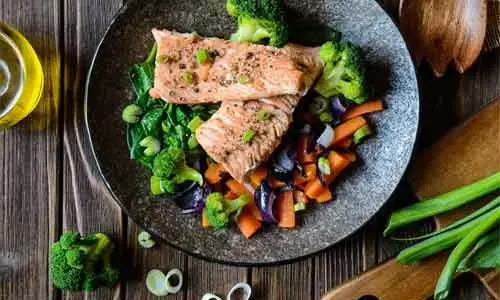- Home
- Medical news & Guidelines
- Anesthesiology
- Cardiology and CTVS
- Critical Care
- Dentistry
- Dermatology
- Diabetes and Endocrinology
- ENT
- Gastroenterology
- Medicine
- Nephrology
- Neurology
- Obstretics-Gynaecology
- Oncology
- Ophthalmology
- Orthopaedics
- Pediatrics-Neonatology
- Psychiatry
- Pulmonology
- Radiology
- Surgery
- Urology
- Laboratory Medicine
- Diet
- Nursing
- Paramedical
- Physiotherapy
- Health news
- Fact Check
- Bone Health Fact Check
- Brain Health Fact Check
- Cancer Related Fact Check
- Child Care Fact Check
- Dental and oral health fact check
- Diabetes and metabolic health fact check
- Diet and Nutrition Fact Check
- Eye and ENT Care Fact Check
- Fitness fact check
- Gut health fact check
- Heart health fact check
- Kidney health fact check
- Medical education fact check
- Men's health fact check
- Respiratory fact check
- Skin and hair care fact check
- Vaccine and Immunization fact check
- Women's health fact check
- AYUSH
- State News
- Andaman and Nicobar Islands
- Andhra Pradesh
- Arunachal Pradesh
- Assam
- Bihar
- Chandigarh
- Chattisgarh
- Dadra and Nagar Haveli
- Daman and Diu
- Delhi
- Goa
- Gujarat
- Haryana
- Himachal Pradesh
- Jammu & Kashmir
- Jharkhand
- Karnataka
- Kerala
- Ladakh
- Lakshadweep
- Madhya Pradesh
- Maharashtra
- Manipur
- Meghalaya
- Mizoram
- Nagaland
- Odisha
- Puducherry
- Punjab
- Rajasthan
- Sikkim
- Tamil Nadu
- Telangana
- Tripura
- Uttar Pradesh
- Uttrakhand
- West Bengal
- Medical Education
- Industry
Plant-based low carb diet associated with lower risk of liver cancer: Study

Boston, MA: The consumption of plant-based low-carbohydrate diet (LCD) may lower the risk of liver cancer, finds a recent study in the journal Hepatology. The findings support emphasis on plant sources of protein and fat in the diet for the primary prevention of hepatocellular carcinoma (HCC).
The use of plant-based fat, in specific was found to be inversely associated with HCC risk. However, the researchers add that further studies are needed that take into consideration chronic liver diseases and hepatitis B and C virus infections for confirming the findings.
Yue Liu, Department of Medicine, Brigham and Women's Hospital and Harvard Medical School, Boston, MA, and colleagues prospectively evaluated the associations between plant-based and animal-based LCDs and HCC risk in the Nurses' Health Study (NHS) and the Health Professionals Follow-up Study (HPFS).
The researchers assessed dietary intake every 4 years using validated food frequency questionnaires. Hazard ratios (HRs) and 95% confidence intervals (CIs) were calculated using Cox proportional hazards regression models.
Key findings of the study include:
- During 3,664,769 person-years of follow-up, there were 156 incident HCC cases. Although there were no associations between overall or animal-based LCD score and risk of HCC, plant-based LCD score was inversely associated with HCC risk (HR, 0.83).
- Carbohydrate intake, especially from refined grains (HR, 1.18), was positively, while plant fat (HR, 0.78) was inversely associated with HCC risk.
- Substituting 5% of energy from plant fat and protein for carbohydrate (HR, 0.74) or refined grains (HR, 0.70) was associated with lower HCC risk.
"Our findings indicate that a plant-based LCD and dietary restriction of carbohydrate from refined grains were associated with a lower risk of HCC. Substituting plant fat and protein for carbohydrate, particularly refined grains, may decrease HCC incidence," wrote the authors.
"Additional studies that carefully consider HBV and HCV infections and chronic liver diseases are needed to confirm our findings," they concluded.
Reference:
The study titled, "Plant-Based and Animal-Based Low-Carbohydrate Diets and Risk of Hepatocellular Carcinoma Among US Men and Women," is published in the journal Hepatology.
DOI: https://aasldpubs.onlinelibrary.wiley.com/doi/epdf/10.1002/hep.31251
Dr Kamal Kant Kohli-MBBS, DTCD- a chest specialist with more than 30 years of practice and a flair for writing clinical articles, Dr Kamal Kant Kohli joined Medical Dialogues as a Chief Editor of Medical News. Besides writing articles, as an editor, he proofreads and verifies all the medical content published on Medical Dialogues including those coming from journals, studies,medical conferences,guidelines etc. Email: drkohli@medicaldialogues.in. Contact no. 011-43720751


